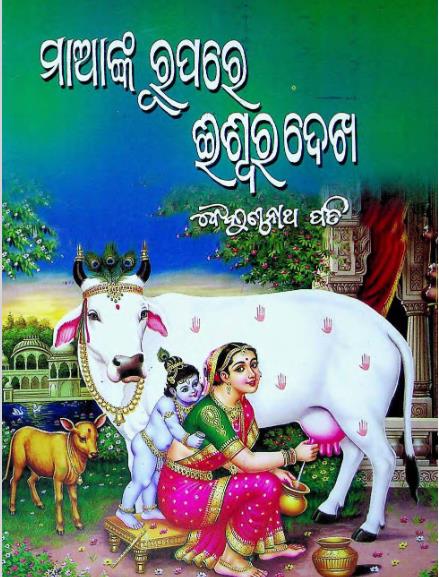Baikunthanath Pati, a prominent figure in Odia literature, has the unique ability to weave profound thoughts into simple yet evocative verses. His poem Manka Rupare Iswar Dekha, published in 2020, is a brilliant testament to this talent, particularly shining when viewed through the lens of childhood and the pure, unblemished perspective that children possess.
The title itself, which translates to Seeing God in the Face of a Child, immediately invites readers to explore the themes of innocence, purity, and divinity. Through this poem, Pati captures the essence of childhood and how children perceive the world around them. It is often said that children see the world with fresh eyes, unfettered by the biases and complexities that adult experiences impose. This poem serves as a reminder to adults about the beauty of such unclouded perception.
At its core, Manka Rupare Iswar Dekha draws a parallel between the innocence of children and the divine. Pati beautifully articulates how the untainted nature of a child can reflect the presence of God. In the eyes of a child, the world is a canvas of joy and curiosity, filled with wonder and limitless potential. This depiction encourages readers to reminisce about their own childhood and the simplicity of those early years.
The poem conveys a sense of reverence for children, suggesting that they are not just future leaders or adults in waiting but embodiments of purity and divine essence. When they laugh, cry, or play, it is as if they are communicating with a higher power, reminding us that every moment of genuine emotion is a connection to the spiritual.
Pati’s use of simple yet impactful imagery allows readers to visualize the scenes he paints with words. Whether it’s the laughter of children echoing in the playground or their sheer joy in the small things, the poem encourages a deep appreciation for these fleeting moments. The author seems to urge adults to observe children and learn from them—not just to teach them about the world, but to be reminded of the beauty that exists in simplicity.
This exploration of the relationship between children and the divine also serves as a critique of adult life. In their relentless pursuit of success and recognition, adults often lose sight of what truly matters. Pati’s poem is a gentle nudge towards reconnecting with our inner child and acknowledging the wisdom that can be gleaned from the experiences and perspectives of the young.
This exploration of the relationship between children and the divine also serves as a critique of adult life. In their relentless pursuit of success and recognition, adults often lose sight of what truly matters. Pati’s poem is a gentle nudge towards reconnecting with our inner child and acknowledging the wisdom that can be gleaned from the experiences and perspectives of the young.
This exploration of the relationship between children and the divine also serves as a critique of adult life. In their relentless pursuit of success and recognition, adults often lose sight of what truly matters. Pati’s poem is a gentle nudge towards reconnecting with our inner child and acknowledging the wisdom that can be gleaned from the experiences and perspectives of the young.
Books Info
| Books name | Manka Rupare Iswar Dekha / ମାଆଙ୍କ ରୂପରେ ଈଶ୍ୱର ଦେଖା |
| Author | Baikunthanath Pati |
| No Of pages | 66 |
| Publisher | Rashtriya Sahitya Sanstan |
| Publication | 2020 |
| Printed At | Compuprint |
| Distributor | NA |

